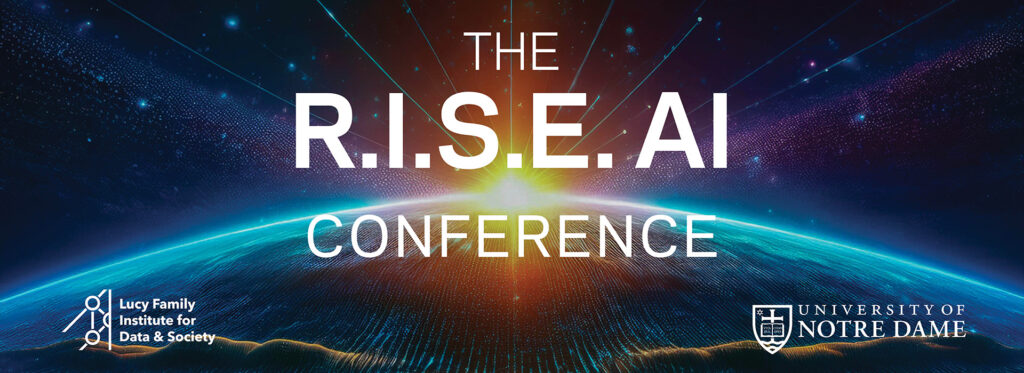The USPTO’s new director has singled out AI, distributed ledger technologies and diagnostics as prime areas of innovation that merit patent protection. Companies, investors and other stakeholders are closely watching how the USPTO’s active guidance may better align patent practice with the ingenuity and societal benefits these technologies represent.
Watt to Know About the New Frontier of Digital Infrastructure

Last week, Duane Morris kicked off a new multipart webinar series—What’s Watt— taking a deep dive into the critical relationship between energy and modern data centers and highlighting the trends and technologies reshaping digital infrastructure. The series launched with a state-of-the-market discussion with DigitalBridge’s Jeff Ginsberg and Duane Morris’ Robert Montejo, moderated by Brad Molotsky. The panel offered insights on the industry’s key trends.
Here’s Watt you missed:
1. Power Is Key
Watt’s Old: Smaller-scale developments with traditional grid access.
Watt’s New: A mix of utility power, onsite generation, and creative energy strategies to meet a much greater demand.
AI’s explosive growth is reshaping the energy landscape, driving an unprecedented need for reliable, large-scale power. Training and operating advanced AI models requires massive compute clusters that draw far more electricity than traditional cloud workloads, pushing data centers into power ranges once associated with heavy industry. As organizations race to deploy AI capabilities, the demand for high-density facilities, fast interconnection, and resilient energy infrastructure is outpacing what many utilities can deliver on typical timelines. This surge is forcing developers, operators, and policymakers to rethink how and where digital infrastructure is built—prioritizing power availability, alternative generation sources, and innovative grid partnerships to keep pace with AI’s accelerating requirement.
2. Infrastructure Is Expensive
Watt’s Old: Traditional loan structures with shorter maturities.
Watt’s New: Large-scale, multilayered financing with longer terms and institutional investors capable of absorbing significant risk.
The next wave of data center development—driven by AI-scale power and capacity requirements—will require hundreds of billions of dollars in capital. Whether this growth ultimately forms a bubble remains unclear, but its scale is already reshaping credit markets and stretching the capacity of conventional lenders. As banks reach concentration limits and face regulatory constraints, developers increasingly rely on institutional investors, sovereign funds, infrastructure platforms, and hyperscalers with trillion-dollar balance sheets to support long-duration projects. These deals frequently involve complex capital stacks, special purpose vehicles, and financing horizons of 15–25 years to match the lifecycle of large campuses and energy assets.
3. Focus on Execution
Watt’s Old: Out of sight, out of mind.
Watt’s New: Plan deliberately and anticipate environmental, regulatory, and community challenges.
Ambitious AI-driven demand has raised the stakes for planning and execution in large-scale data center and energy projects. Power generation—whether grid-supplied or onsite—introduces thermal loads, water requirements, land-use impacts, and transmission needs that must be addressed early to keep projects viable. In many regions, particularly in the Western U.S., water constraints, aquifer depletion concerns, and limited cooling alternatives can quickly challenge site feasibility. Local infrastructure pressures, such as noise, construction logistics, easements, and grid constraints, often converge with environmental and community concerns, creating conditions ripe for pushback or organized resistance. Effective execution now means proactive engagement, rigorous resource planning, and transparent mitigation strategies to avoid delays and ensure that projects scale responsibly amid real and growing demand for AI infrastructure.
Find a recording of the full-length discussion here.
Watt’s Next: Our webinar series continues with What’s Watt: Nuclear Power and the Future of Data Center Construction
Gen AI Class Action Key Decisions and Trends in 2025
This year has been a busy one in the generative artificial intelligence (gen AI) class action litigation landscape. New pleadings were filed, including several new class actions, several consolidated and amended complaints, and one appeal. Several key decisions were issued, including a trio that formed a three-way split of authority on how to determine whether training a gen AI model on copyrighted materials constitutes “fair use” under the Copyright Act. Additionally, one humongous settlement was reached.
Read the full article by Justin Donoho.
Copyrightability of AI-Generated Works – Petition for Certiorari Tees Up Supreme Court Review of Test Case on “Human Authorship
By Mark Lerner
Following a refusal to grant a copyright registration to Stephen Thaler for a work whose sole author was identified as “Creativity Machine,” a generative AI Thaler created, the D.C. Circuit affirmed that works authored exclusively by artificial intelligence are ineligible for copyright protection under the Copyright Act, which the court read to require human authorship, in keeping with the Copyright Office interpretation and prior case law. A petition for certiorari and a supporting amicus brief now ask the U.S. Supreme Court to take up the question of whether the Copyright Act requires human authorship, arguing that the statute’s text, structure and purpose do not categorically impose such a requirement and that existing doctrines leave room for AI to be recognized as the author of protected works.
Read the full Alert on the Duane Morris website.
Webinar: AI and Wearables
Duane Morris will host the third session of its Wearable Webinars Series, Product Liability and IP Strategies for Wearables, on Tuesday, November 4, 2025, 12:00 p.m. to 12:30 p.m. Eastern.
Agatha Liu, Ph.D., will cover how wearables with diagnostic, monitoring or therapeutic claims fall under the FDA’s software as a medical device framework, including predetermined change control plans, good machine learning practices and real-world performance monitoring of adaptive algorithms.
California’s “No Robo Bosses” Act Won’t Get Governor’s Sign On

By Alex. W. Karasik, Brian L. Johnsrud, and George J. Schaller
Duane Morris Takeaways: On October 13, 2025, California Governor Gavin Newsom, issued a written statement declining to sign Senate Bill 7 – called the “No Robo Bosses” Act (the “Act”). While the Act aimed to restrict when and how employers could use automated decision-making systems and artificial intelligence, Governor Newsom rejected the proposed legislation in terms of the Act’s broad drafting and unfocused notification requirements. Governor Newsom’s statement reflects an initial rebuttal to a wave of pending AI regulations as states wrestle with suitable AI guidance. Given the pro-employee tendencies of Governor Newsom and California regulators generally, this outcome is a mild surprise. Employers nonetheless should expect continued scrutiny of AI regulations before enactment.
This legislative activity surely sets the stage for what many believe is the next wave of class action litigation.
See more on the Duane Morris Class Action Defense Blog.
Webinar: Navigating the Future of Finance & AI Regulation
Duane Morris will present a webinar, Navigating the Future of Finance & AI Regulation: A Webinar on Emerging Legal Frameworks for AI and Digital Assets Reform, on Wednesday, November 12, 2025 | 3:00 p.m. to 4:30 p.m. Eastern.
Continue reading “Webinar: Navigating the Future of Finance & AI Regulation”Alex Karasik Shares Stories from the R.I.S.E. AI Conference at the University of Notre Dame

This week at the University of Notre Dame’s inaugural R.I.S.E. AI Conference in South Bend, Indiana, partner Alex W. Karasik of the Duane Morris Class Action Defense Group was a panelist at the highly anticipated session, “Challenges and Opportunities for Responsible Adoption of AI.” The conference, which had over 300 attendees from 16 countries, produced excellent dialogues on how cutting-edge technologies can both solve and create problems, including class action litigation.
Read more at the Duane Morris Class Action Defense Blog.
Calif. Leads the Way in Consumer-Facing AI Regulation with Automated Decisionmaking Technology Rules
As an important development in U.S. AI regulation, California enacted its automated decisionmaking technology (ADMT) rules in September 2025. These are the first enacted, broadly scoped, consumer-facing AI governance rules in the country. They offer opt-out rights and logic disclosures for AI-driven significant decisions affecting consumers. The rules took effect on October 1, 2025, with compliance required by January 1, 2027, for covered businesses that use ADMT in significant decisions before that date. Read the full Alert on the Duane Morris website.
AI Catches Up to California Employers: Regulations for Automated-Decision Systems Now in Effect
With artificial intelligence developing at breakneck speed, California employment regulations are following right behind. Updated regulations issued by the California Civil Rights Council address the use of artificial intelligence, machine learning, algorithms, statistics and other automated-decision systems (ADS) used to make employment-based decisions. The updated rules, which took effect October 1, 2025, amend existing regulations, Cal. Code Regs., tit. 2, and are designed to protect against potential employment discrimination. The regulations apply to all employers with at least five employees working anywhere and at least one located within California. Read the full Alert on the Duane Morris website.
